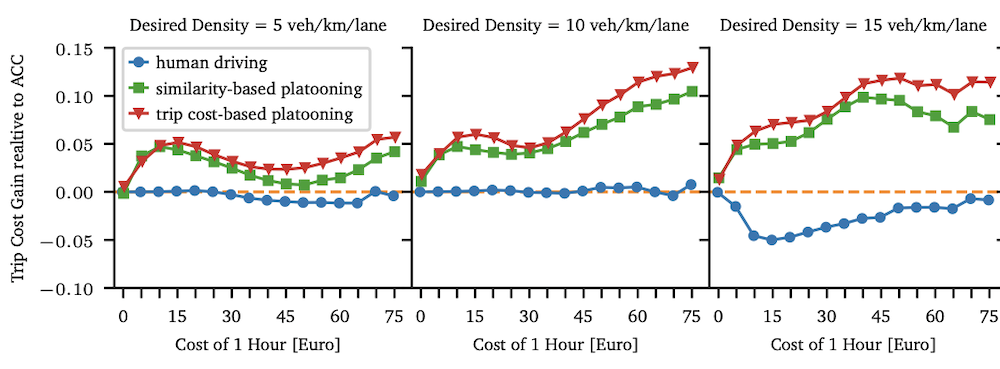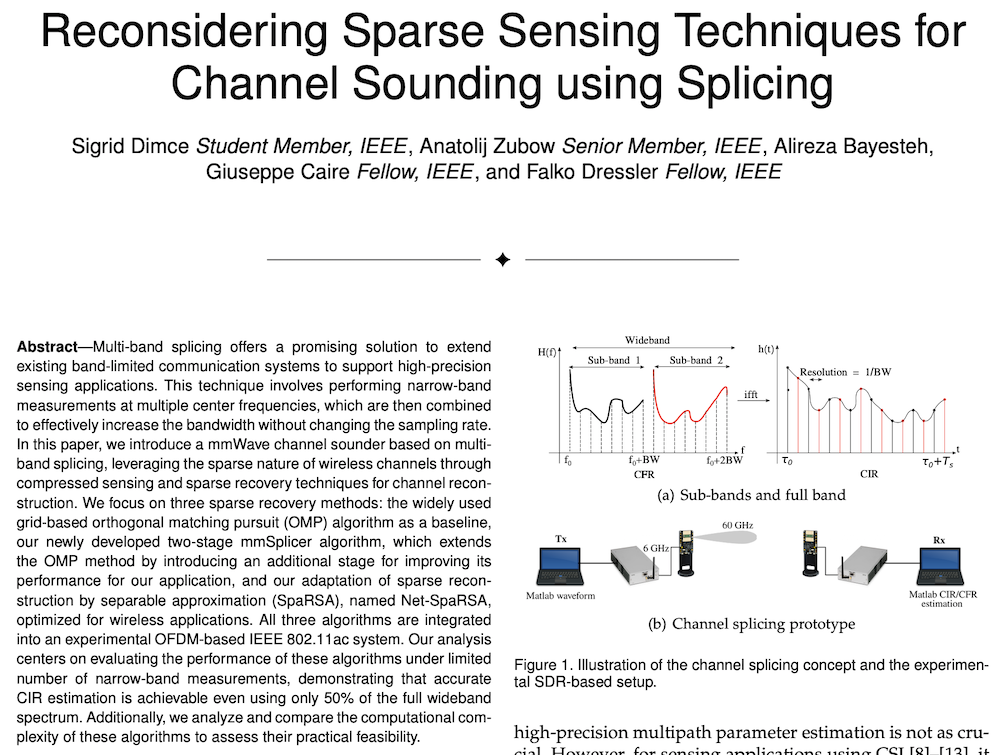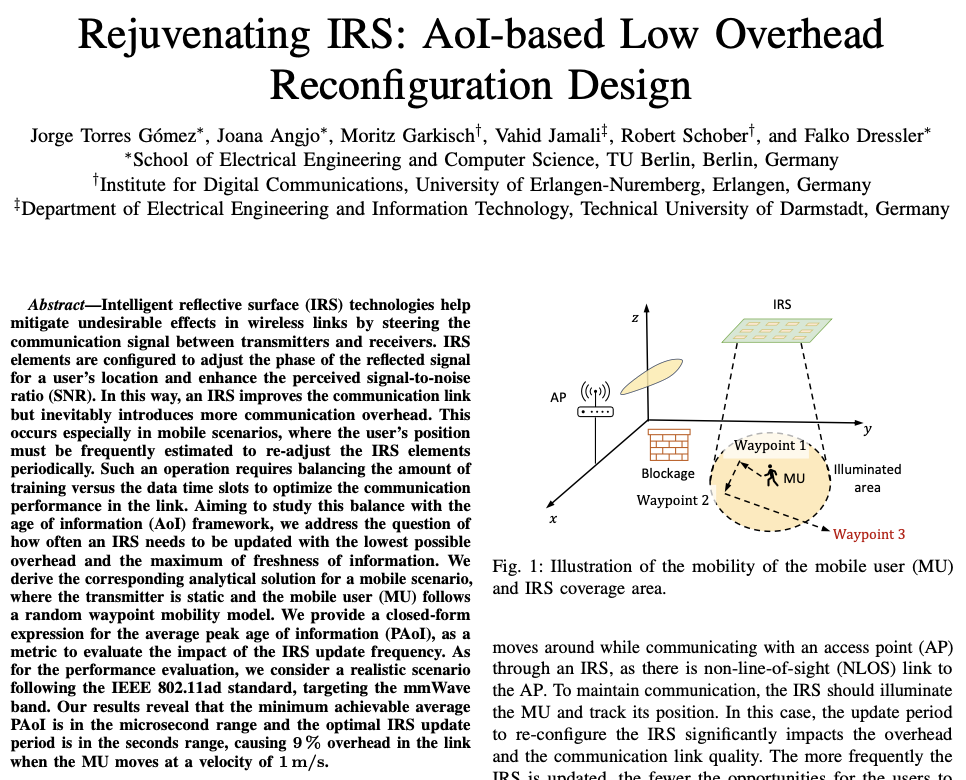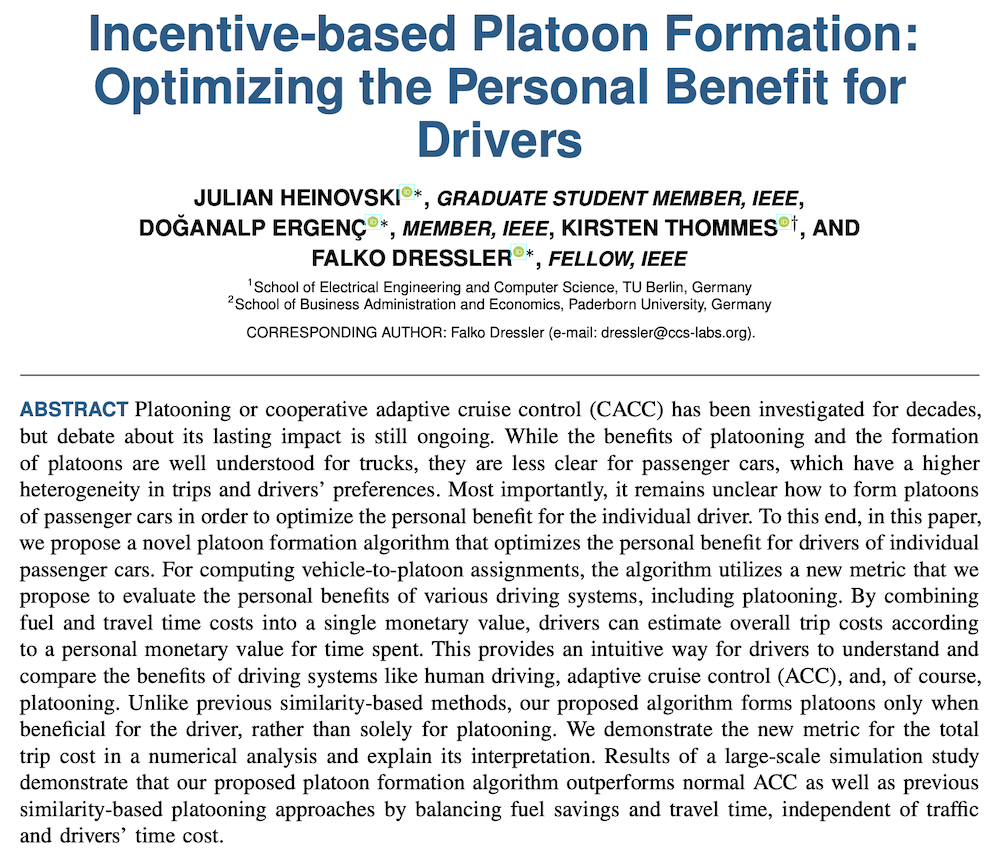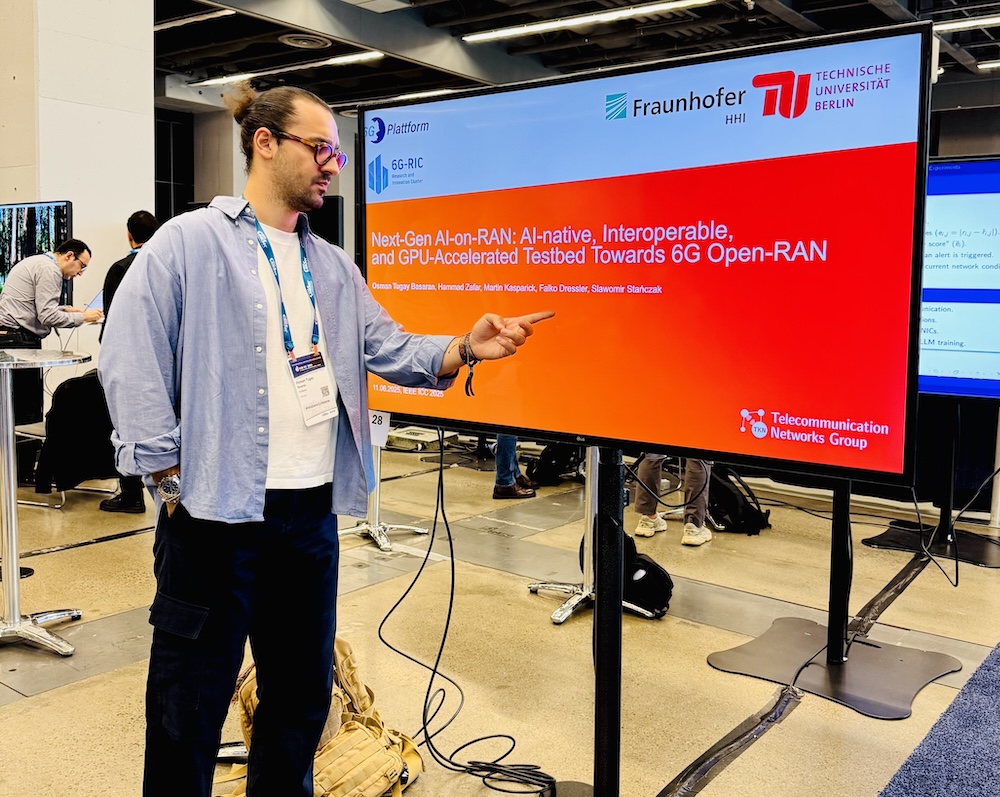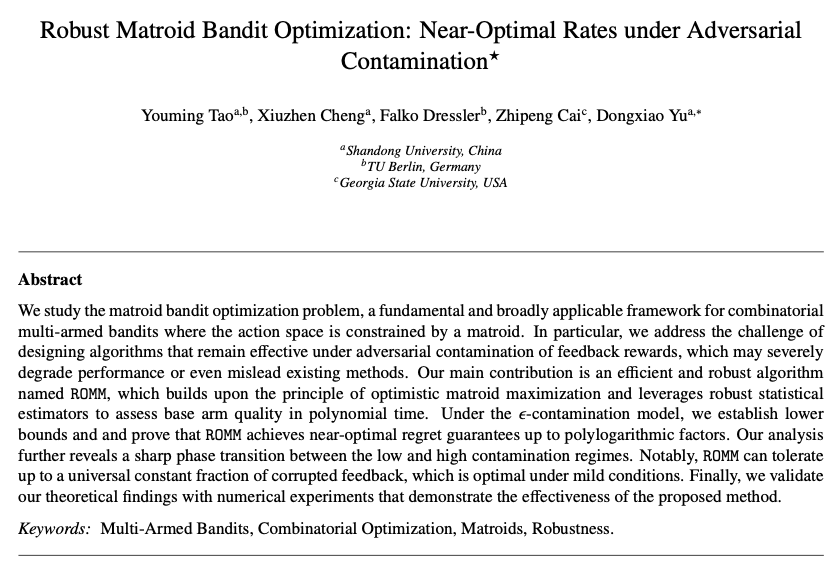Performance Limits of IEEE 802.11p in Highly Dynamic Vehicular Ad Hoc Networks


Institutions
- Distributed Embedded Systems, Department of Computer Science, Paderborn University
- Network Research Lab, Dept. of Computer Science, University of California, Los Angeles
Team @ CCS
- Prof. Dr. Falko Dressler (coordination)
- Prof. Dr. Mario Gerla (coordination)
- Bastian Bloessl
Funding
- DAAD
Project Time
- 09/2015-03/2016
Description
Future vehicles are envisioned to communicate directly with each other and optionally infrastructure nodes, forming a Vehicular Ad Hoc Network (VANET). Once deployed, VANETs can provide the basis for a multitude of interesting applications and, thus, have been an active research topic for many years. In 2010, the IEEE 802.11p standard was released, which defines a MAC and PHY for use in vehicular environments. However, IEEE 802.11p is only a slight modification of ordinary WLAN and, hence, it might well be the case that a PHY that was designed for indoor environments delivers suboptimal performance. This project is about investigating this issue with the help of Software Defined Radios (SDRs). The idea is to use my existing IEEE 802.11p implementation to study the performance of different receiver designs ranging from typical WLAN receivers to state of the art implementations proposed for use in VANETs. The results will clearly indicate whether the initial idea of reusing off the shelf WLAN cards in vehicular environments is truly appropriate. Current research suggests that this is unlikely given the frame design in conjunction with the short coherence time of the channel. Furthermore, I will investigate to what extent complex state-of-the-art receivers can help improving the robustness of the PHY and highlight the potentials as well as the limitations of the current standard.
Selected Publications
2016
Conferences and Workshops
 Bastian Bloessl, Mario Gerla and Falko Dressler, "IEEE 802.11p in Fast Fading Scenarios: From Traces to Comparative Studies of Receive Algorithms," Proceedings of 22nd ACM International Conference on Mobile Computing and Networking (MobiCom 2016), 1st ACM International Workshop on Smart, Autonomous, and Connected Vehicular Systems and Services (CarSys 2016), New York City, NY, October 2016.
[DOI, BibTeX, PDF, More details]
Bastian Bloessl, Mario Gerla and Falko Dressler, "IEEE 802.11p in Fast Fading Scenarios: From Traces to Comparative Studies of Receive Algorithms," Proceedings of 22nd ACM International Conference on Mobile Computing and Networking (MobiCom 2016), 1st ACM International Workshop on Smart, Autonomous, and Connected Vehicular Systems and Services (CarSys 2016), New York City, NY, October 2016.
[DOI, BibTeX, PDF, More details]

